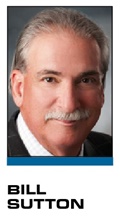“Teach them the quiet words of kindness, to live beyond themselves. Urge them toward excellence, drive them toward gentleness, pull them deep into yourself, pull them upward toward manhood, but softly like an angel arranging clouds. Let your spirit move through them softly.”
Pat Conroy, “The Prince of Tides”
While this quote from one of my favorite authors can be used to describe a number of teaching or counseling activities, I like to think that he was describing the mentoring process. Teaching, guiding, moving, urging and driving are all mentoring verbs. The unique aspect of the mentoring process is how it all comes together in a benevolent, selfless, Socratic and, hopefully, inspirational experience for both the mentor and the protégé.
For as long as I can remember, I have been assigning professional mentors each year for my graduate students. A mentor is commonly characterized as being an experienced and trusted adviser, so the mentors that I recommend are, in most cases, former students of mine. I choose former students for several reasons: They have traveled the same path; they remember being assisted by their own mentors; and they understand that anyone they assist becomes part of their network in what everyone acknowledges is a very small industry. Former students also share a common bond with current students having earned a similar degree and completed an internship and understanding the trials and tribulations of the hunt for that first job.
It also goes without saying that there needs to be some level of relationship between the person asking for the mentor and the mentor, and that relationship must develop and grow during the mentoring process.
Aspects of mentoring
The role of the mentor
■
Serve as a sounding board providing advice and direction
■ Offer suggestions, possibilities and alternatives
■ Make introductions when appropriate
■ Review résumés and other application materials
■ Teach and coach
■ Provide exposure and visibility
■ Offer encouragement and support
■ Convey improvement/growth opportunities
■ Provide information that can be used for self-discovery and advancement
■ Define the relationship and set limits
The role of the protégé
■ Be respectful of the mentor’s time
■ Be prepared for your interaction opportunities
■ Provide honest information and always be forthcoming
■ Follow through on suggestions
■ Be coachable and receptive
■ Ask and answer questions
■ Be actively engaged in the relationship
■ Commit to accepting advice and feedback
A common misperception about mentoring is that it takes place only when someone is in the early stages of a career. The truth is that mentoring relationships should take place throughout one’s career, as there is always a need for advice and counsel. As a person rises in the organization, or when they are offered an opportunity to accept a position outside of the organization, there are always questions that an experienced mentor can attempt to answer by providing sage advice and being able to offer input on the pros and cons of a situation.
As careers evolve and progress, the need for a mentor will always be there. But because of the changing situations, the types of advice needed will also change, meaning that sometimes a new mentor or an additional mentor might be needed. For example, if the individual is moving from one sport to another, from a team to an agency, or from an agency to a brand, the job-changer may elect to find a mentor who has made similar job changes or someone with significant experience in that particular job segment. The key, as in any mentor selection, is the ability of the mentor to offer meaningful and valuable advice.
And what does a mentor receive in exchange for all of this advice and assistance (other than the occasional Hallmark card, a free lunch and maybe a holiday gift)? Mentoring, like any type of voluntary activity, is a selfless act. In this case, the mentor has no expectations of personal gain or benefit. The mentor is simply sharing the wealth of experiences or expertise to help someone lacking in that same area. As someone who has done a lot of mentoring, I can offer several reasons why I enjoy mentoring: symbolically paying back those who have mentored me; helping good people find opportunities working for people or teams that I care about; and, most simply and most commonly, a feeling of satisfaction from helping someone and hopefully making a difference. As someone who has been involved in some significant financial deals in the sports industry, I can tell you that helping a student find the right opportunity far surpasses the feeling of a good deal.
I would also have to say that I have always used the mentoring process as a protégé as well. My list of mentors includes people with whom I have worked, former students who know me well, and a few tried and true professionals whose role it has been to provide career counseling and placement, such as Buffy Filippell and Bob Beaudine. All of the types of mentors I have mentioned have helped me make critical career decisions to accept and, in some cases, reject various employment opportunities. While I have great confidence in my own judgment, I value the role of the mentor as a sounding board, particularly those who understand me well and can ask the right questions for me to consider and assess.
As William Shakespeare, who has been known to provide some excellent advice, wrote, “They that thrive well take counsel of their friends.”
Bill Sutton (wsutton1@usf.edu) is the founding director of the sport and entertainment business management MBA at the University of South Florida, and principal of Bill Sutton & Associates. Follow him on Twitter @Sutton_ImpactU.




